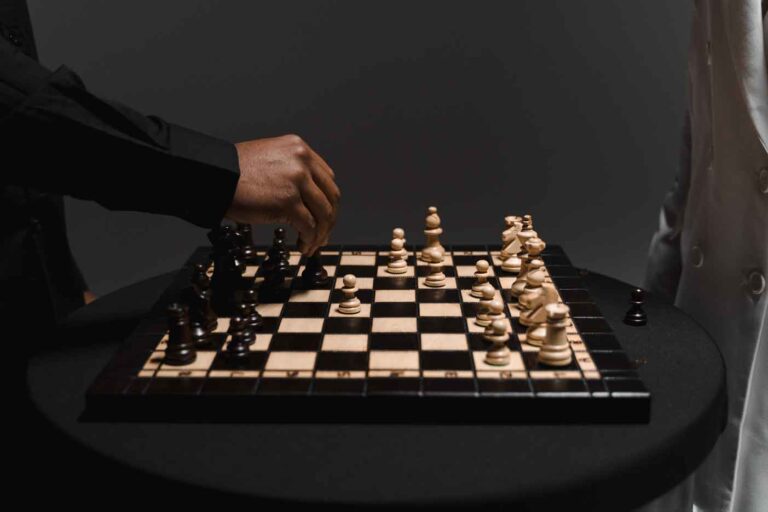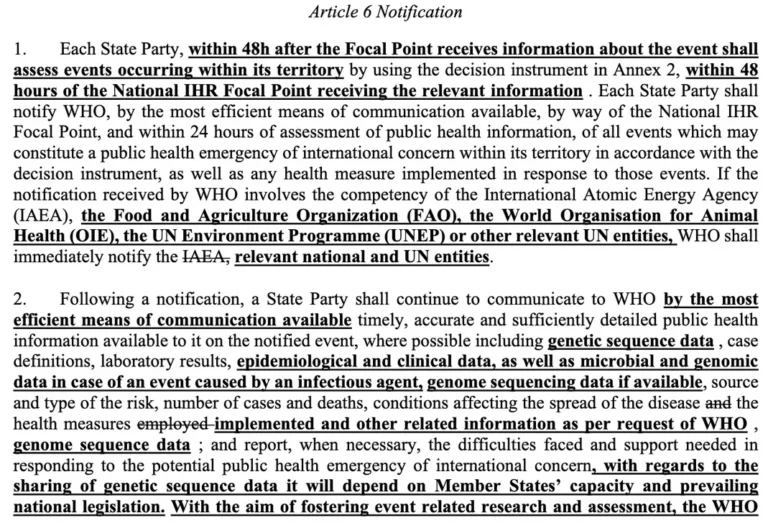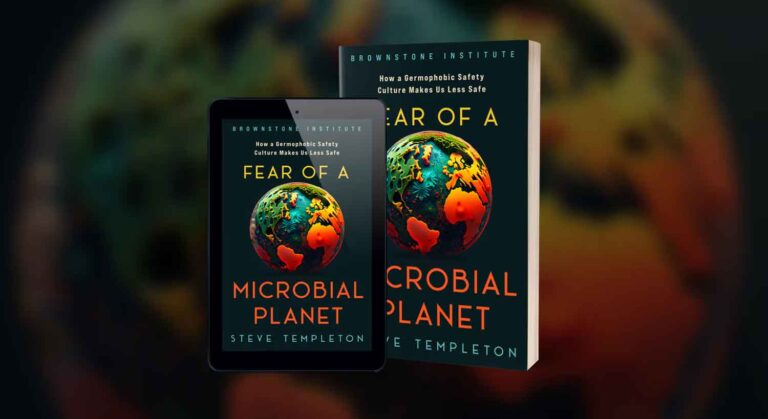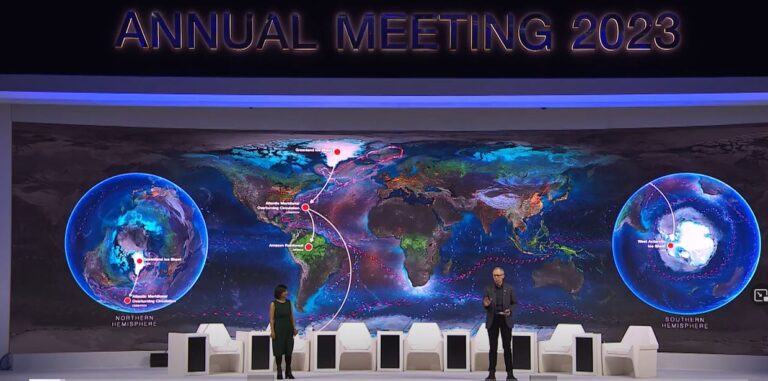This article is a repost with the kind permission from the author
Through its Young Global Leaders program, the World Economic Forum has been instrumental in shaping a world order that undermines all democratic principles. For several decades, this program has nurtured compliant leaders acting as WEF agents in governments around the world. The consequences are far-reaching and may turn out to be devastating for humanity.
Updated January 2023
Klaus Schwab, interviewed by David Gergen at John F. Kennedy School of Government, Harvard University, 2017:
Gergen: …that when you brought the Young Global Leaders here [to Harvard] for executive education and then the Schwab Fellows, but there are two countries in the world now in which the Young Global Leaders have emerged. Tell us just a bit about that, in terms of governance.
Schwab: Yes, actually, there’s this notion to integrate young leaders as part of the World Economic Forum since many years. I have to say when I mention our names like Mrs Merkel, even Vladimir Putin and so on – they all have been Young Global Leaders of the World Economic Forum. But what we are very proud of now – the young generation like Prime Minister Trudeau, President of Argentina [Mauricio Macri] and so on – that we penetrate the cabinets. So yesterday I was at a reception with Prime Minister Trudeau and I would know that half of this cabinet, or even more than half of this cabinet, are our… actually Young Global Leaders.
Gergen: It’s true in Argentina, as well?
Schwab: It’s true in Argentina and it’s true in France now, with the President [Macron]…
In 1992, Klaus Schwab and World Economic Forum launched a program initially called Global Leaders of Tomorrow. In 2004, this program was transformed into the Forum for Young Global Leaders (which I cover in my book The Global Coup D’Etat) – a 5-year program of indoctrination into WEFs principles and goals, led by his Klaus’ daughter Nicole Schwab. The aim was – and is – to find suitable future leaders for the emerging global society.
The program has since its inception included more than 3,800 politicians and public officials, royalty, business leaders, bankers, tech innovators, social entrepreneurs, philanthropists, think tanks, journalists, authors, artists and other cultural influencers from all over the world who have excelled in their fields but have not yet turned 40 years of age (originally 43 in order to include Angela Merkel and Vladimir Putin). It has since grown into an extensive global network of dedicated leaders with enormous resources and influence, of which many are are still active in World Economic Forum’s many communities, projects och and working groups, helping to implement its technocratic plans in their respective nations and fields.
The network creates a force for worldwide influence through the combination of the individual skills and resources of its members.
As Klaus Schwab says in the introductory quote, it has become very successful. Already in the first year, 1992, a number of highly influential candidates were elected. Among 200 selected were global profiles such as Angela Merkel, Tony Blair, Nicolas Sarkozy, Bill Gates, Bono, Richard Branson (Virgin), Jorma Ollila (Shell Oil), and José Manuel Barroso (President of the European Commission 2004–2014).[1] Since then, there has been over 400 top politicians and public servants on the programme.
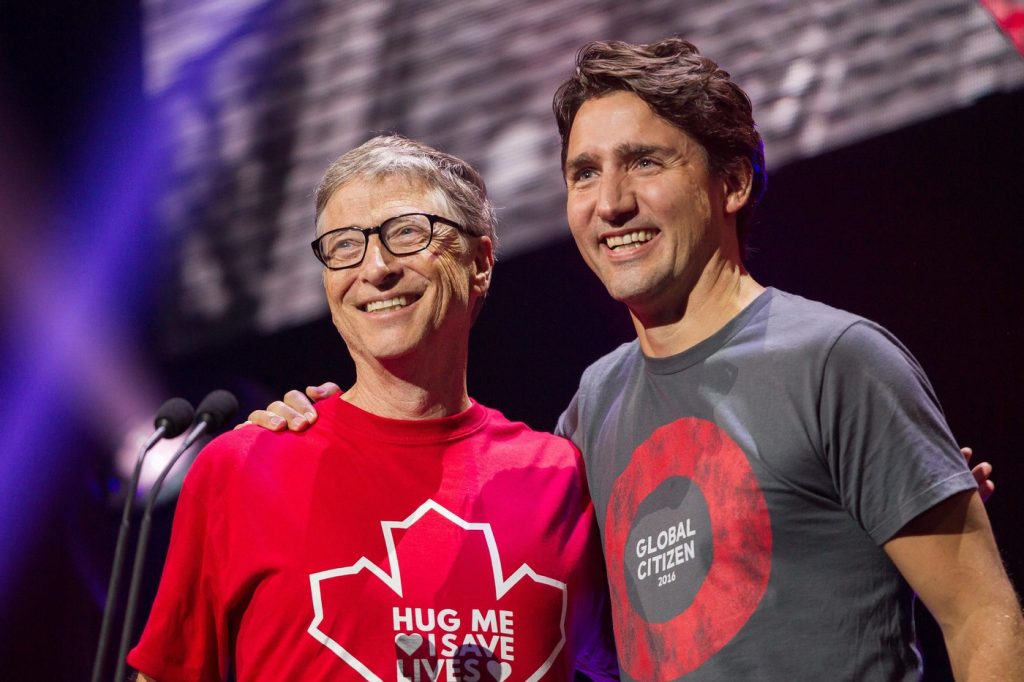
Bill Gates (Global Leader of Tomorrow 1992) and Justin Trudeau (Young Global Leader)
Another “Global Leader of Tomorrow” 2000 was Chrystia Freeland, current Deputy Prime Minister and Minister of Finance of Canada, a journalist and author who was previously managing director of Thomson Reuters and deputy editor of the Financial Times. She is also a board member of the World Economic Forum and Threatened protesters in Ottowa: “Consider yourselves warned,” she said, and later froze bank accounts of people supporting the Truckers for Freedom.
As Foreign Minister, she led and successfully concluded the renegotiation of the North American Free Trade Agreement (NAFTA) between Canada, Mexico, and the United States. In November, 2019, Ms. Freeland was appointed Deputy Prime Minister of Canada and Minister of Intergovernmental Affairs. In this capacity, she led Canada’s united response to the COVID-19 pandemic. (World Economic Forum)[2]
• Our complete sorted and vetted YGL list 1993–2022 can be downloaded for free HERE
Select examples of influential Global Leaders of Tomorrow and Young Global Leaders (by year):[3]
Politicians
1993: Tony Blair, Prime Minister of the UK (1997–2007)
1993: Angela Merkel, Chancellor of Germany (2005–2021)
1993: Vladimir Putin, President of Russia (2012–)
1993: Viktor Orbán, Prime Minister of Hungary (2010–)
1993: Nicolas Sarkozy, President of France (2007–2012)
1993: José Manuel Barroso, President of the European Commission (2004–2014)
2000: Chrystia Freeland, Deputy Prime Minister and Minister of Finance, Canada (2019–)
2002: Ilir Meta, President of Albania (2017–)
2003: Greg Hunt, Minister of Health and Aged Care, Australia (2017–), led Australia’s Covid-18 response
2005: Gavin Newsom, Governor of California (2019–)
2005: Justin Trudeau, Prime Minister of Canada (2015–), used the Emergencies Act against peaceful protesters
2006: Thani bin Ahmed Al Zeyoudi, Minister of State for Foreign Trade, United Arab Emirates (2020–)
2006: Sanna Marin, Prime Minister of Finland (2019–)
2008: Karien van Gennip, Minister of Social Affairs and Employment, Netherlands (2022–); CEO of VGZ health insurance (Nov 2020)
2008: Ed Miliband, Shadow Secretary of State for Climate Change and Net Zero, UK (2021–)
2009: Anies Baswedan, Governor of Jakarta, Indonesia (2017–)
2009: Sebastian Kurtz, Chancellor of Austria (2017–2021), pro-vaccines but opposed to mandatory vaccinations (29 July 2021), had to resign in Oct 2021 due to alleged corruption and replaced by Schallenberg (who was less hesitant)
2010: Alexander De Croo, Prime Minister of Belgium (2017–)
2010: Vincent van Quickenborne, Minister of Justice, Belgium (2020–)
2011: Jagdeo Bharrat, Vice-President of Guyana (2020–)
2013: Ida Auken, Minister of Environment, Denmark (2011–2014), currently Folketing MP and author to the infamous WEF article Welcome To 2030: I Own Nothing, Have No Privacy And Life Has Never Been Better),
2014: Jacinda Arden, Prime Minister of New Zealand (2017–), led harsh lockdowns
2016: Emmanuel Macron, President of France (2017–), intiated vaccine passports and wanted to “piss off the unvaccinated”
2016: Jens Spahn, Minister of Health, Germany (2021–)
2019: Carlos Alvarado Quesada, President of Costa Rica
2019: Mamuka Bakhtadze, Prime Minister of Georgia (2018–2019)
2019: Kamissa Camara, Minister of Digital Economy and Forecasting, Mali (2019–2020)
2019: Juan Guaidó, President of Venezuela (2019–)
2019: Annika Saarikko, Deputy Prime Minister of Finland (2020–)
2020: Faisal Al-Ibrahim, Minister of Economy and Planning, Saudi Arabia (2021–)
2020: Shauna Aminath, Minister of Environment, Climate Change and Technology, Maldives (2021–)
2020: Hammad Azhar, Minister of Energy, Pakistan (2021–2022)
2020: Annalena Baerbock, Minister of Foreign Affairs, Germany (2021–)
2020: Ugyen Dorji, Minister of Domestic Affairs, Bhutan (2018–)
2020: Karina Gould, Minister of Families, Children and Social Development, Canada (2021–)
2020: Paula Ingabire, Minister of Information Communication Technology and Innovation, Rwanda (2008–)
2021: Vera Daves de Sousa, Minister of Finance, Angola (2019–)
2021; Martín Guzmán, Minister of Economy, Argentina (2019–)
2021: Ronald Lamola, Minister of Justice and Correctional Services, South Africa (2019–)
Royalty
2001: Crown Princess Victoria of Sweden
2003: Crown Prince Frederik of Denmark
2004: Prince Willem-Alexander of the Netherlands
2005: Crown Prince Haakon of Norway
2007: Queen Mathilde of Belgium
2008: Princess Lalla Salma of Morocco
2010: Prince Bandar Bin Khalid Al Faisal of Saudi Arabia
2012: Crown Princess Mary of Denmark
2015: Princess Reema Bint Bandar Al-Saud, Ambassador of Saudi Arabia to the United States
Business and tech entrepreneurs
1995: Paul Allen, co-founder of Microsoft
1993: Richard Branson, founder of Virgin Records and Virgin Air
1993: Jorma Ollila, chairman of Shell Oil
1993: Jacob Wallenberg, chairman of Investor
1995: Michael O’Brien, VP, Goldman Sachs International
1997: David Filo, co-founder of Yahoo
1998: Jeff Bezos, counder of Amazon
1999: Pierre Omidyar, founder of eBay
2001: Jack Ma, founder of Alibaba and Alipay
2002: Larry Page, founder of Google
2005: Niklas Zennström, founder of Skype
2005: Ali Y. Koç, president, Koç Holsings, Turkey
2005: Marc Benioff, CEO of Salesforce
2007: Jimmy Wale, founder of Wikipedia
2008: Elon Musk, founder of Tesla Motors
2009: Chad Hurley, co-founder of Youtube
2010: Evan Williams, co-founder of Twitter
2010: Ricken Patel, founder of Avaaz
2010: Mark Zuckerberg, founder of Facebook/Meta
2014: Leah Busque, founder of TaskRabbit
2014: David Karp, founder of Tumblr
2016: Joe Gebbia, founder of Airbnb
2019: Anjali Sud, CEOof Vimeo
2021: Zhengyu He, head of systems engineering, Ant Financial (spinoff of Alipay and basis for the Social Credit system in China)
Media and celebrities
1993: Bono, singer and co-founder of the ONE campaign
1993: David Roy Thomson, chairman of Thomson Reuters
2002: Carlos Lozada, Managing Editor, Foreign Policy (CFR)
2003: Carina L. Dennis, senior editor, Nature Magazine
2006: Debo Adesina, Editor, The Guardian Newspapers
2008: Anderson Cooper, anchor CNN
2008: Kristine Stewart, CBC and Twitter Canada
2008: Shakira, singer2008: Leonardo Di Caprio, actor and UN Messenger of Peace on Climate Change
2010: Wyclef Jean, rapper
2013: Chelsea Clinton
2015: Ivanka Trump, Senior Advisor to President Trump
2019: Gary Liu, CEO, South China Morning Post
The purpose from the beginning has been to “identify and advance a future-oriented global agenda, focusing on issues at the intersection of the public and private sectors.” Public–Private Partnerships is one of the cornerstones of the World Economic Forum philosophy. That is, a merger between state and large companies (also known as corporativism) with the aim of solving global problems in a more “effective” way. The choice of leaders clearly reflects this aspiration.
The Young Global Leaders group was initially instructed to identify the major challenges of the 21st century. These included peace, the environment, education, technology and health – areas which these upcoming leaders could exploit politically, economically, and culturally in the new millennium.
Partners for Global Leaders of Tomorrow in 2000 were large global companies such as The Coca Cola Company, Ernst & Young, Volkswagen, and BP Amoco. These could contribute to the agenda by “playing an active role in developing and implementing the concept of the GLT project. The partners can therefore actively participate in the development of GLT programs; representatives of the partner companies as well as their guests are invited to GLT meetings .. ”
Since the Global Leaders of Tomorrow was turned into Young Global Leaders 2004, partners such as the Bill & Melinda Gates Foundation, Google, and JPMorganChase (with alumni from the program) have also participated as sponsors.
The ultimate consequence of both public–private partnerships and these target areas is the creation of a largely fascist social contract in which the individual has become subordinated to these powerful interests. Noble goals of creating a better world have also been kidnapped. This is especially evident in the context of the partnership between the WEF and the UN and the implementation of the global goals (Agenda 2030) through the application of the technologies of the Fourth Industrial Revolution.
This means that the democratic principles and division of power of the 20th century have largely been completely undermined and instead replaced by a new global class that shapes our common future based on their own interests. This has led to a de facto privatisation of both national governments and international organisations, where lobbyists are no longer kept in the lobby but have moved into the seat of power, shaping policies directly affecting our lives. What this means has become particularly evident since the pandemic was declared in March 2020. In addition, leading multinational investment management corporations such as BlackRock, led by the World Economic Forum’s own Larry Fink, have constantly moved their positions forward.
German economist and journalist Ernst Wolff believes that many of the national leaders included in the Young Global Leader program have been selected for their willingness to carry out the tough agenda of lockdowns in recent years without asking any questions, and that their impending failure (as evidenced by in a growing dissatisfaction of the masses) will be used as an excuse to create a new form of Global Government where the old nation states become largely obsolete. A new global digital currency with Universal Basic Income (UBI) can then be gradually introduced to replace our doomed monetary system.[4] This conclusion partly coincides with my own. It is also supported by Paul Raskin‘s scenarios from The Great Transition Initiative on how a totalitarian “New Earth Order” is established, to be replaced in the long run by a global democratic government (Earth Federation) with a World Constitution.[5]
The COVID-19 pandemic has underscored the catastrophic failure of an every-country-for-itself approach to public health, and national economic interests, rather than global needs, continue to dominate discussions of climate policy, paving the path toward climate chaos.
Under the tricameral World Parliament come the four main agencies of the Earth Federation government: the World Supreme Court system, the World Executive, the World Enforcement System, and the World Ombudsman.[6]
Glen T. Martin, The Great Transition Requires the Earth Constitution
The vision is that a peaceful and harmonious world in balance is created through the establishment of a World Federation with a World Parliament, World Government and a World Court. These are ideas that have long circulated in Club of Rome and closely connected New Age circles. The question is how such a new global system of power would escape the fate of being kidnapped by the same interests that created our current corrupt and failing system? This is in view of those who support projects such as The Great Transition (initiated with start-up capital from Steven Rockefeller). What is happening is rather a method of taking us to their ultimate solution in the form of a global technocratic control system.
However, it is highly unlikely that this plan will succeed. Awareness is spreading like wildfire and the panic of the elite increases as their narrative crumbles and people become more and more immune to the propaganda. Hence all the inquisitors and “fact checkers” who diligently gatekeep the narrative and help steer public opinion in the “right” direction. They are surely to be trusted since, for example, David Roy Thomson, Chairman of the Thomson Reuters Corporation, is an alumni of Global Leaders of Tomorrow, class of 1993.
It is now time to take control of our own destinies and to avoid falling into new traps.
References
Thanks to investigative journalist Cory Morningstar for the clip that inspired this blog article. Follow her blog Wrong Kind of Green.
[1]World Economic Forum, GLT Class of 1993.pdf
[2]World Economic Forum, Chrystia Freeland
[3]World Economic Forum, Young Global Leaders Community (searchable list over YGL alumni)
[4]Michael Lord, “Exposed: Klaus Schwab’s School For Covid Dictators, Plan for ‘Great Reset’“, RAIR Foundation, November 10, 2021
[5] Paul Raskin, Journey to Earthland: The Great Transition to Planetary Civilization.pdf, Tellus Institute, Boston, 2016
[6] Glen T. Martin, The Great Transition Requires the Earth Constitution“, Great Transition Initiative, November 2021


